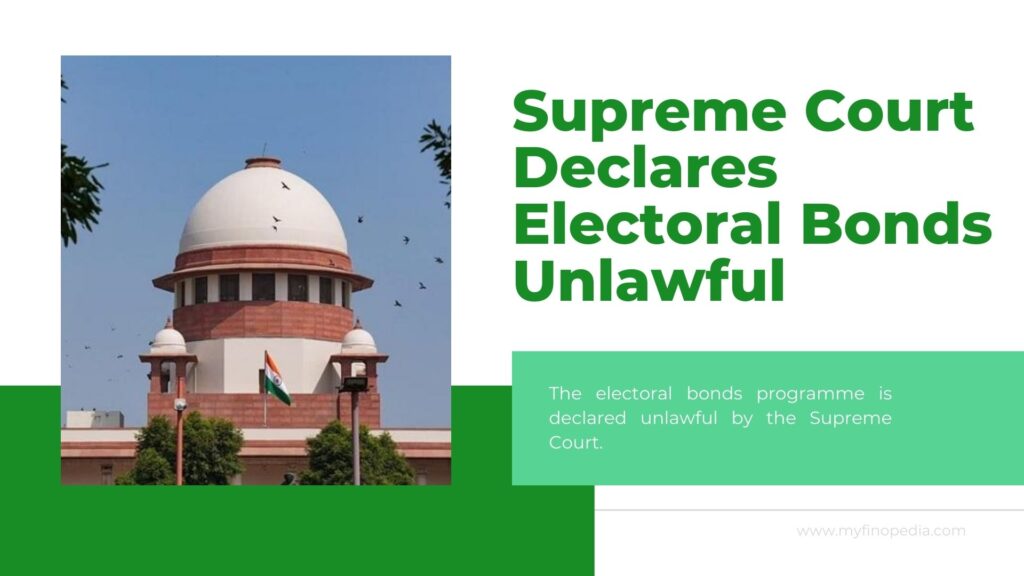The Supreme Court overwhelmingly determined on Thursday that the electoral bonds programme, which gives political donors complete confidentiality, and significant legal changes permitting big business to make unlimited political contributions are “unconstitutional and manifestly arbitrary.”
In his main judgement, Chief Justice Chandrachud noted that the total non-disclosure of the source of political money through electoral bonds promoted a culture of quid pro quo with the ruling party to seek policy changes or gain licenses. According to the plan and the amendments, “unrestrained influence of corporates in the electoral process” was permitted.
The Union government claimed that electoral bonds‘ anonymity to political donors encouraged them to make financial donations through banking channels, but the court rejected this claim.
The court decided that a person’s political allegiance is protected under their fundamental right to privacy. Nonetheless, it stated that the voters’ right to information and information privacy should coexist in harmony.
Chief Justice Chandrachud made a clear distinction between contributions made by people as a statement of their political ideas and donations made by corporations in exchange for benefits.






